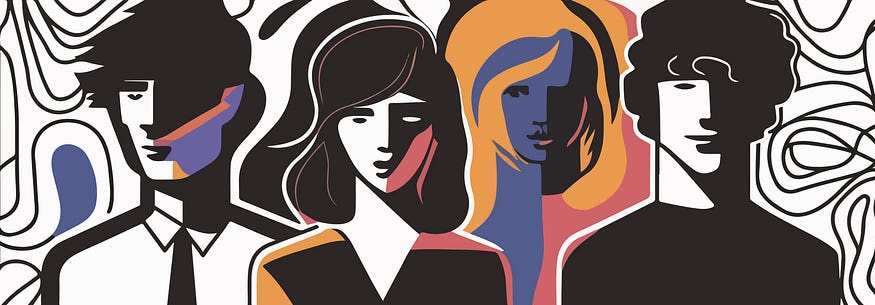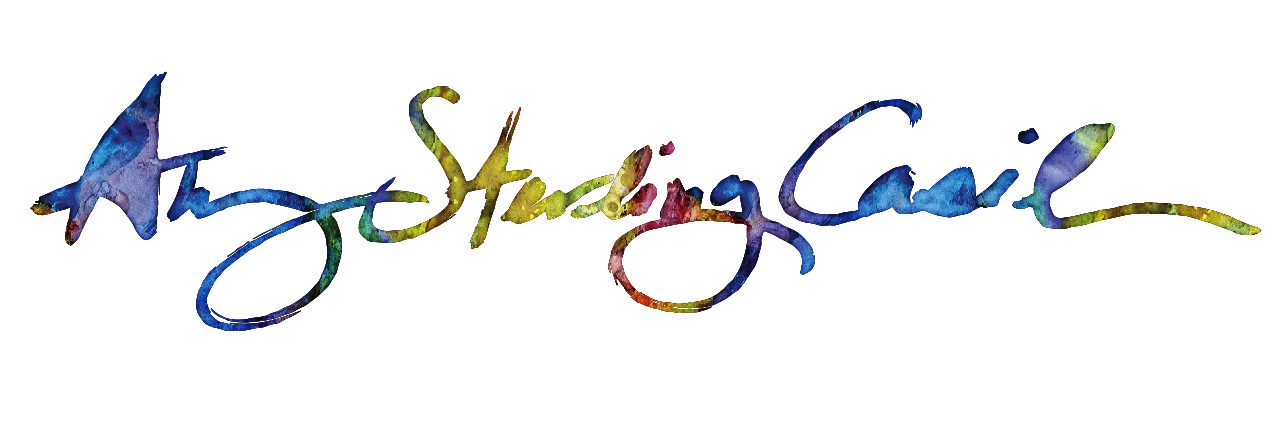We teach our children how to brush their teeth, tie their shoes, and button their jackets.
One summer long ago, I got a call at work.
“Come pick up your daughter. She is being expelled …”

Yes, my daughter was expelled from the YWCA preschool at age 4 because, and I quote, “She pinched Bob with her scissors.”
Bob, age 5, was not injured.
“Honey, why did you pinch Bob with your scissors?” I asked my miscreant, delinquent, expelled child —
“He tore up my collage.”
I forgot: her other expulsion-worthy offense? She had licked another child’s shoe.
“Well, honey,” I said. “I would have pinched him too.” Thanks to my child being declared an anti — social delinquent before 5 years of age, I got to spend the best six weeks of my life at home with my little girl before she entered Kindergarten at Redlands Christian School and I started attending Chapman University full-time.
Meredith wasn’t the only kid who got expelled. Four of her little girlfriends and two little boys were also kicked out within a week or two.
The person with the problem with social skills wasn’t my daughter or the other little kids.
It was the new preschool director — unable to coach and lead teachers and with little to no knowledge of appropriate activities and structure for young children — she eliminated daily conflicts among toddlers and preschoolers with a flurry of expulsions and suspensions.
Of normal three, four, and five-year-olds.
By the next year, the entire program had shut down.
So, what’s the takeaway?
In my opinion, many centuries ago, somebody invented “math.” The first engineer is said to be Imhotep, the builder of the “Step Pyramid” in Egypt. No one knows who “invented” art, and Hippocrates is said to be the “inventor” of “modern medicine.”
Of course, these are just today’s versions of origin stories. Does it matter who “invented” anything? It matters more that people right now, do things to make their own lives, and the lives of others … better.
Most human activities are about making our own lives … better. Or, they’re about making the lives of those we love and care for better.
Some people are very concerned about artificial intelligence (AI) being dangerous to humans. They are also concerned about programs like ChatGPT or AI art programs taking over human jobs and eliminating professions like mine (writing) or like my friend John Picacio’s (illustration and art).
Yet I can think of one area of interest, and it involves creativity, intuition, persistence, and lifelong practice — where there aren’t many, if any devoted academic researchers — and no professional jobs in the area that I know of, as the jobs or roles we see are more like ripoff artists than actual professionals with defined duties and measurable results —
People Skills: AKA What Carl Rogers Knew And Taught
From the moment I first read the Rogerian Argument chapter in the college textbook I used for almost two decades, I was fascinated by Dr. Carl Rogers and always made sure to include assignments using his communication techniques.
I know we have “communications” departments and degrees. These skills are typically put to work in fields like advertising, marketing, and work “training.” Many people with communications degrees go to work for networks, streaming services, and government agencies. Communications and PR go hand-in-hand.
Those are one-way streets and one-way degrees. “Domination” or “Deception” might be better monikers than “Communications.”
The Machiavellian among us have a text written by their namesake which tells you everything you need to know about lying, cheating, doing others dirty, and maintaining a good public reputation with the ignorant and gullible rabble.
The people in our world who have the best soft people skills can sometimes be great salespeople. They can also be our favorite teacher, favorite counselor, and often, favorite friend. Good moms have excellent people skills. So do — sometimes — good dads. I was fortunate to have been raised by my grandfather, who is, to this day, one of the best with people I ever knew or saw.
Learning how to get along together and accomplish things together is the biggest challenge of the 21st century, and it’s going to continue to be the biggest challenge and hardest job as long as humans are around.
According to a 2020 article from the New York Times by Eric Ravenscroft, “Unlike topics like math or science, social skills are more of a ‘learn on the job’ kind of skill.”
Today’s social media is anything but “social skills.”
Social media was invented by, and it is owned and controlled by, people who have minimal social skills. Many workplaces are owned by people who have negative social skills.
Anyone who has been a server in any upscale restaurant, or a flight attendant, or a nurse, can describe the behavior of poorly-socialized people. All of those people know how to handle the poorly-socialized.
I am not going to be the “inventor” of the official field of “social skills” or “empathy.” But I am someone who recognizes that for everyone’s lives to maintain their present comfort and for our country to move forward into the future with a good life for our children and grandchildren, these skills can’t be taken for granted any longer.
We don’t rely on parents to exclusively teach their children trigonometry, computer programming, or brain surgery.
Formally Teach and Learn Social Skills in School
It’s about time that we formalize the teaching and learning of social skills in the U.S. There are many precedents in other countries: in Singapore, high-priced international schools emphasize social skills and give direct instruction and practice in “how to get along” and work with others.
In Denmark, students meet for an hour each week and share a “Class Hour cake.”
During Class Hour in Danish schools, the entire class comes together, eats their simple cake, and relaxes. If a student has a concern or problem, they say what it is, and the whole class talks about a solution together.
Because I live in today’s America, I know what the reaction of many people will be to this.
And it will be negative because the reactors are unhappy, miserable, isolated people who lack the ability to even shake someone’s hand or greet them appropriately while passing on the street.
The majority, of course, aren’t like that.
The majority of us suffer daily because unfortunately — there are too many unsocialized, low-social-skill, unhappy, miserable, angry, self-entitled, greedy, mean, selfish others out there —
So, we do not expect kids to learn how to do trigonometry or brain surgery because their parents taught them how to make change at the store or do the dishes.
And — I’m about done with the angry, mean, dumb, tone-deaf others out there: the men’s rights advocates, the diehard political adherents of any politician, the backstabbers and the gossipers, and the garden variety liars and cheats.
The only way any of this will get better is if those of us who aren’t this way and who recognize that our own health and happiness comes from our own strength, wellness, and well-being —
Work on these skills ourselves, and support these skills being formally developed and taught in our schools.
My friends, there is a reason why ultra-conservatives want to eliminate public schools.
It’s because they are greedy, evil, dishonest, and bigoted (at best) and want society to return to the angry, dangerous, risky, genocidal and murderous days of the “Wild West.” Most people did get along back then: if they didn’t, we wouldn’t be here today.
But I doubt the majority of people would like their neighbors to be like John Wesley Hardin, a serial killer who shot a man in the head in the hotel room next door …
because the guy was snoring.
Social skills. It’s a thing. It’s like math. Thousands of years ago: no math. Then somebody started marking lines on a stick.
Like it or not — that’s the low level in this field of endeavor — we are at.
Sources:
Alexander, Jessica. “Teaching kids empathy: In Danish schools, it’s … well, it’s a piece of cake,” Salon, 9 August 2016, url: https://www.salon.com/2016/08/09/teaching-kids-empathy-in-danish-schools-its-well-its-a-piece-of-cake/
Ravenscraft, Eric. “An Adult’s Guide to Social Skills, for Those Who Were Never Taught,” New York Times, 23 January 2020, url: https://www.nytimes.com/2020/01/23/smarter-living/adults-guide-to-social-skills.html

Leave a Reply